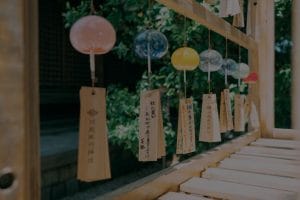**Abstract**: Discover how Feng Shui ornaments can transform your meditation space into a calming sanctuary. Learn to enhance tranquility and promote mindfulness through strategic placements and thoughtful selections.
Understanding Feng Shui and Its Benefits
Feng Shui, the ancient Chinese practice of arranging space harmoniously, is more than just aesthetics; it’s about creating a balanced environment that promotes positive energy, or “Chi.” In Western cultures, the growing interest in mindfulness and wellness has led many to embrace Feng Shui principles. The right Feng Shui ornaments can enhance your meditation practice, creating a serene atmosphere that fosters relaxation and focus. By understanding the core concepts of Feng Shui, you can curate a space that not only looks beautiful but also supports your mental and emotional well-being.
Choosing the Right Ornaments for Your Space
When selecting Feng Shui ornaments, consider items that resonate with you personally. Crystals, for example, are popular choices. Amethyst is known for its calming properties, while clear quartz amplifies energy. Incorporating these stones into your meditation space can enhance your experience. Additionally, consider using symbols of peace, such as Buddha statues or lotus flowers, which represent purity and spiritual awakening. The key is to choose items that evoke a sense of calm and connection, allowing you to deepen your meditation practice.
Placement Matters: Creating Harmony in Your Space
The placement of your Feng Shui ornaments is crucial in achieving balance. According to Feng Shui principles, each area of your space corresponds to different aspects of life. For meditation, focus on the “Knowledge” and “Calm” areas, typically located in the northeast and center of your space, respectively. Positioning calming ornaments in these areas can enhance your focus and tranquility. Additionally, ensure that your space is clutter-free, as chaos can disrupt the flow of Chi and hinder your ability to meditate effectively.
Incorporating Natural Elements
Integrating natural elements into your meditation space can amplify the calming effects of Feng Shui ornaments. Plants, such as peace lilies or snake plants, purify the air and add a touch of nature, fostering a serene environment. Water features, like small fountains, can also introduce soothing sounds and energy flow. The combination of these elements with your selected ornaments creates a holistic environment conducive to meditation. The tranquility of nature can enhance your mindfulness practice, allowing you to connect more deeply with your surroundings.
Creating a Personalized Meditation Experience
Your meditation space should reflect your personal journey and aspirations. Consider incorporating personal items that hold special meaning, such as photographs or mementos from significant experiences. These elements can provide comfort and inspiration during your meditation sessions. Additionally, creating a dedicated space for meditation can signal your mind that it’s time to relax and focus. By personalizing your space with meaningful Feng Shui ornaments, you cultivate a sanctuary that resonates with your spirit and encourages deeper reflection.
Maintaining Your Calming Space
To ensure your meditation space remains a sanctuary, regular maintenance is essential. Dust and cleanse your Feng Shui ornaments to keep the energy fresh and vibrant. Periodically reassess the placement of your items, as your needs may change over time. Consider adding new ornaments that resonate with your evolving journey. A well-maintained space not only looks inviting but also fosters a continuous flow of positive energy, enhancing your overall meditation experience.
In conclusion, creating a calming space with Feng Shui ornaments for meditation involves thoughtful selection and placement of items that resonate with you. By understanding the principles of Feng Shui and incorporating natural elements, you can design a sanctuary that promotes mindfulness and tranquility. Remember, your meditation space is a reflection of your inner self; nurture it, and it will nurture you in return.










